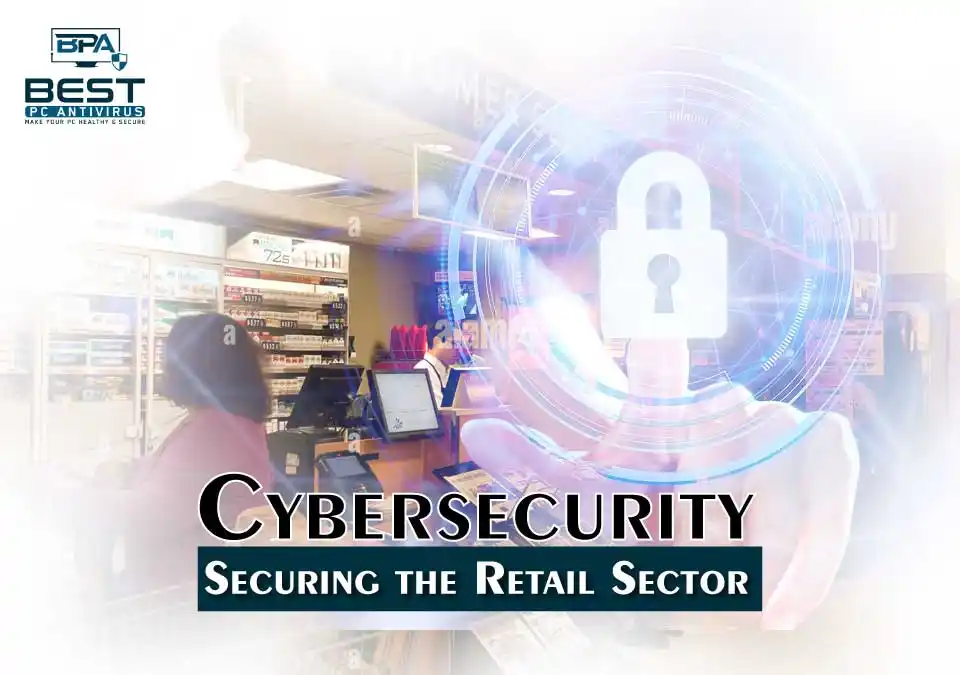The retail sector has become more vulnerable than ever in the cybersecurity front. Maintaining and sustaining a robust cybersecurity framework have become absolutely crucial to all retail businesses. As the records tell that most retail owners aren’t cybercrime experts themselves, we are here to tell you about cybersecurity for retail sector. We are going to talk about all the common mistakes that retailers make, how to combat them and achieve great cybersecurity for retail all around the USA.
What is Cybersecurity for Retail Sector?
Cybersecurity for the retail sector refers to the practices and measures put in place to protect the confidentiality, integrity, and availability of the data and systems used by retailers to conduct their business operations. Retailers collect and store sensitive information, such as customer data, payment card information, and employee data. This information is highly valuable to cybercriminals and can be used for malicious purposes if not adequately secured.
Cybersecurity in the retail sector involves a range of activities, including risk assessments, security planning and policy development, security controls implementation, employee training and awareness, incident response planning, and security monitoring and auditing. The goal of cybersecurity in the retail sector is to prevent unauthorized access to sensitive data, detect and respond to security incidents, and ensure business continuity.
Retailers must comply with various industry standards and regulations such as the Payment Card Industry Data Security Standard (PCI DSS) and the General Data Protection Regulation (GDPR), which require the implementation of specific security measures and practices to protect sensitive data. Failure to comply with these standards can result in fines, legal liabilities, and reputational damage.
Now let’s take a note of all the common mistakes retailers make when setting up their cybersecurity for retail-
Mistake #1 Lack of Employee Training
One of the most common mistakes by retailers is not training their employees. More often than not, employees at retail shops don’t hold a degree in Cybersecurity and may not simply be aware of the kind of phishing attacks your firm encounters. Many retailers don’t provide sufficient training to their employees, which leaves them vulnerable to social engineering attacks and phishing scams. Employees should be trained to identify and report suspicious activity, and how to handle sensitive information securely.
Retailers should provide regular cybersecurity training to all employees. The training should cover topics such as password management, email security, phishing scams, and social engineering attacks. Employees should also be trained to report any suspicious activity to their IT or security teams.
Mistake #2 Poor Password Management
Retailers often fail to enforce strong password policies and fail to limit access to sensitive information to only those who need it. Weak passwords can be easily guessed, and lack of access controls can leave sensitive information exposed to unauthorized personnel, which leads to everything getting f*cked over. Cybersecurity for retail isn’t that complicated, some principles are the same as home’s.
Our consultant suggests retailers must enforce strong password policies and implement two-factor authentication to strengthen the authentication process. They should also limit access to sensitive information to only those employees who need it. Retailers
Mistake #3 Outdated Software and Systems
Many retailers don’t keep their software and systems up to date with the latest security patches and updates, leaving them vulnerable to known vulnerabilities that have already been patched. This makes it easier for cybercriminals to exploit those vulnerabilities and gain access to sensitive or discrete information.
Please just update the systems that store important details. You can use automated patch management tools that can identify and update all outdated software and systems on their network.
Mistake #4 Inadequate Encryption
Retailers often fail to encrypt sensitive data, such as credit card information, which leaves it vulnerable to interception during transmission and storage. Encryption should be used to protect all sensitive data to ensure it is not compromised in transit or storage.
Retailers can implement encryption tools such as SSL/TLS certificates for website traffic and disk encryption for data at rest.
Mistake #5 Lack of Incident Response Plan
Many retailers do not have an incident response plan in place to handle security breaches or cyber attacks. Without an incident response plan, retailer employees may be slow to respond to an attack, leading to greater damage and potential financial losses. Come on, just an hour worth of planning and communicating that to your retail employees could save you millions. Just make sure that your incident response plan includes a designated incident response team, a communication plan, and a process for documenting and analyzing incidents. Voila, you are becoming a genius at cybersecurity for retail.
Mistake #6 Over-reliance on Third-Party Vendors
This has to be the biggest blunders that retailers make and often out of the goodness of their hearts. Retailers often rely on third-party vendors for critical services such as payment processing and inventory management a little too much.
As retailers, you may never know if these vendors have sufficient security measures in place. If not, then you are leaving your discrete data vulnerable to attacks through these vendors’ systems.
Mistake #7 Failure to Monitor Networks and Systems
Many retailers fail to monitor their networks and systems for suspicious activity, making it difficult to detect and respond to an attack in a timely manner. Retailers should have robust monitoring systems in place to detect any unusual activity and take action promptly.
Retailers can use security information and event management (SIEM) tools that provide real-time monitoring and analysis of network activity.
Mistake #8 Lack of Regular Security Assessments
Many retailers do not conduct regular security assessments to identify potential vulnerabilities in their systems and processes. It may seem unnecessary, but without regular security assessments, retailers may not be aware of potential security gaps until it is too late. You wouldn’t want to find out about the loopholes of your system after losing millions, would you?
Retailers can use penetration testing tools to simulate attacks on their network and systems to identify vulnerabilities and develop strategies to address them.
FAQs
Why is cybersecurity important for the retail sector?
Cybersecurity is important for the retail sector because retailers collect and store sensitive information, such as customer data and payment card information. This information is highly valuable to cybercriminals and can be used for malicious purposes if not adequately secured. Cybersecurity helps retailers to prevent unauthorized access to sensitive data, detect and respond to security incidents, and ensure business continuity.
What are the common mistakes that retailers make in terms of cybersecurity?
The common mistakes that retailers make in terms of cybersecurity include lack of employee training, poor password management, outdated software and systems, inadequate encryption, lack of incident response plan, over-reliance on third-party vendors, failure to monitor networks and systems, and lack of regular security assessments.
How can retailers enforce strong password policies?
Retailers can enforce strong password policies by implementing two-factor authentication to strengthen the authentication process. They should also limit access to sensitive information to only those employees who need it. Retailers should encourage employees to use strong passwords that include a mix of uppercase and lowercase letters, numbers, and special characters. Passwords should also be changed regularly.
How can retailers monitor their networks and systems for suspicious activity?
Retailers can monitor their networks and systems for suspicious activity by using security information and event management (SIEM) tools that provide real-time monitoring and analysis of network activity. Retailers should also conduct regular security assessments to identify potential vulnerabilities in their systems and processes.
Why is it important for retailers to have an incident response plan?
It is important for retailers to have an incident response plan because it helps them to handle security breaches or cyber attacks in a timely and efficient manner. A good incident response plan should include a designated incident response team, a communication plan, and a process for documenting and analyzing incidents. This can help retailers to minimize the damage caused by security incidents and reduce potential financial losses.
Read More : Your Guide to Ransomware and preventing it too




